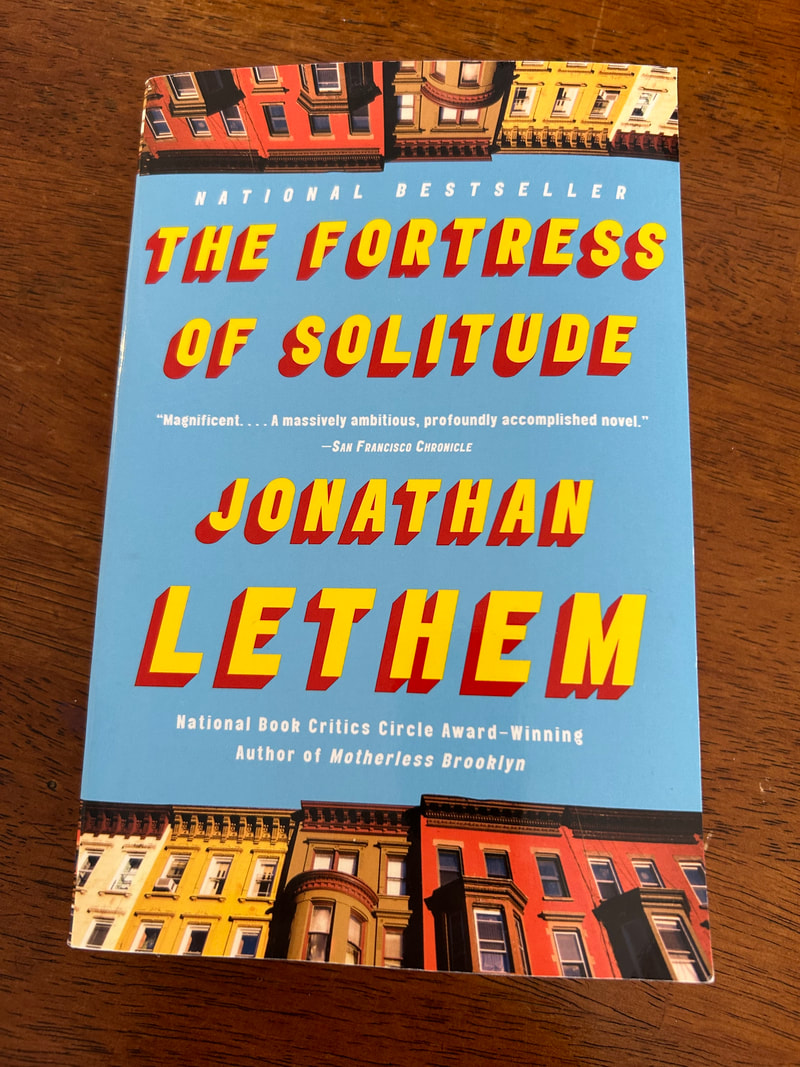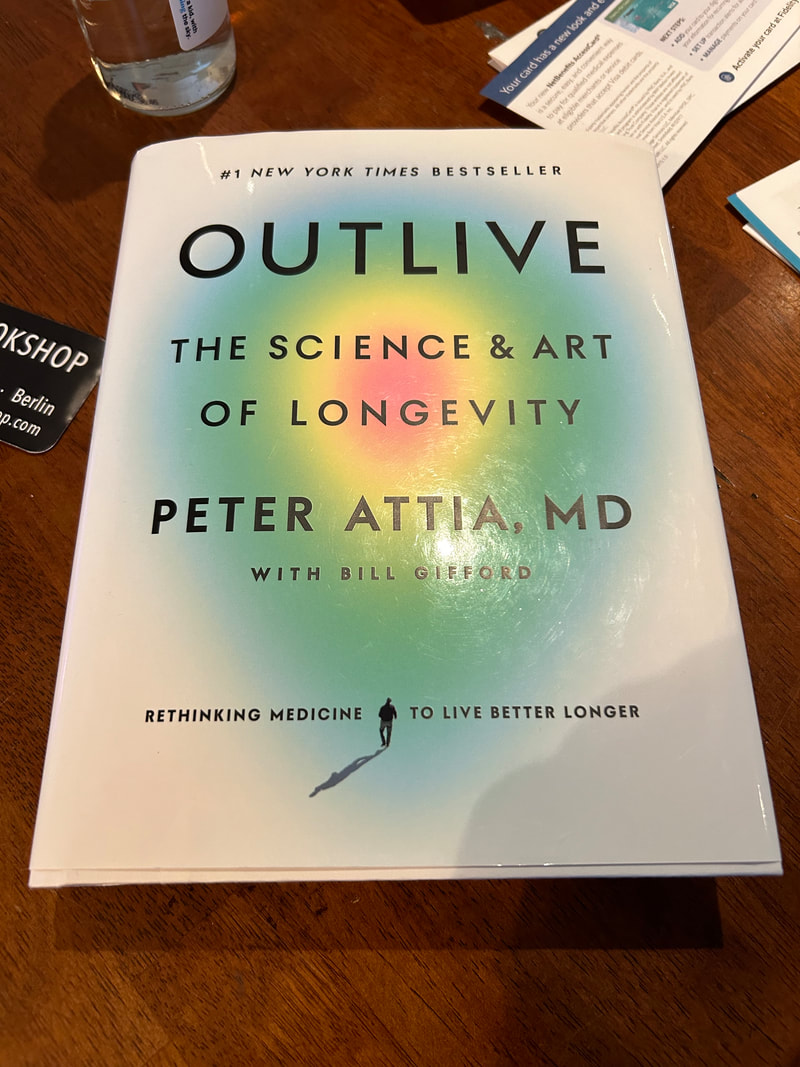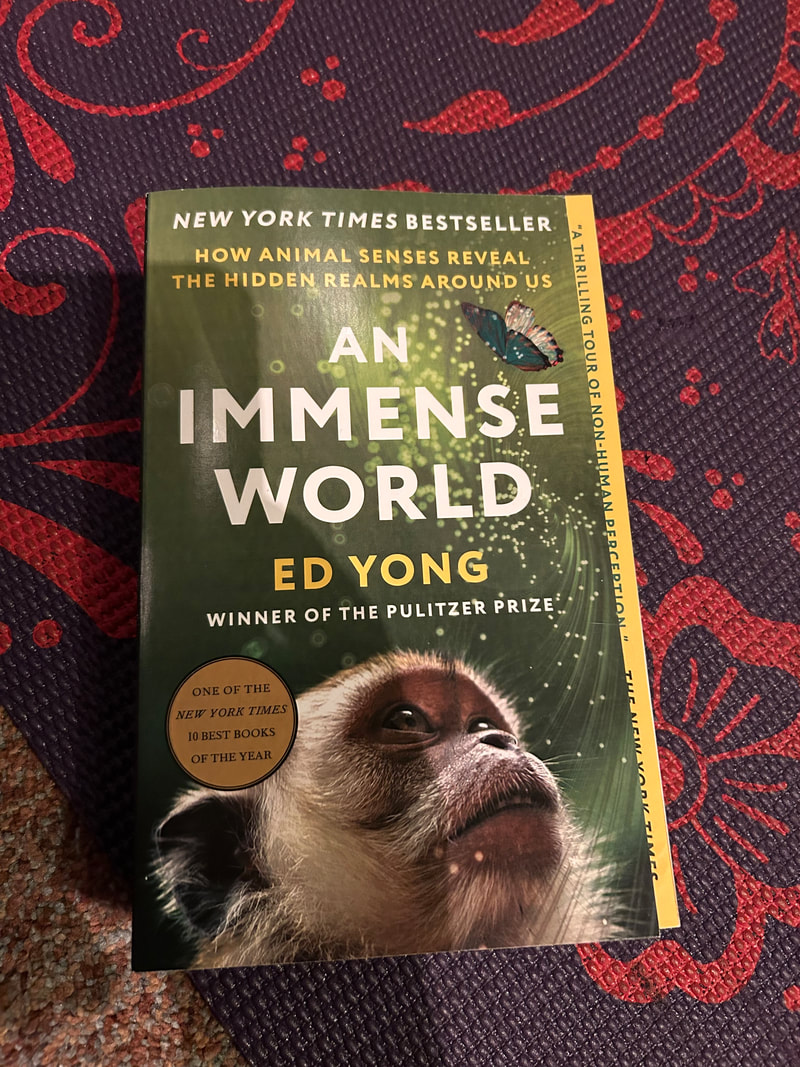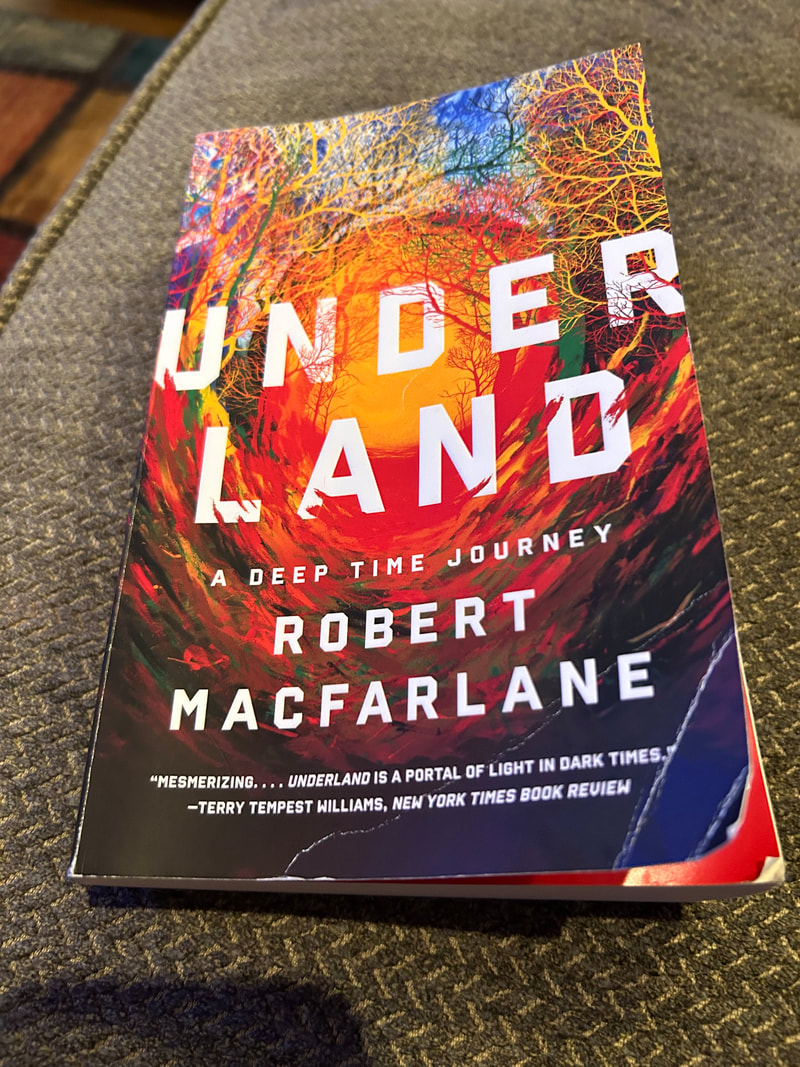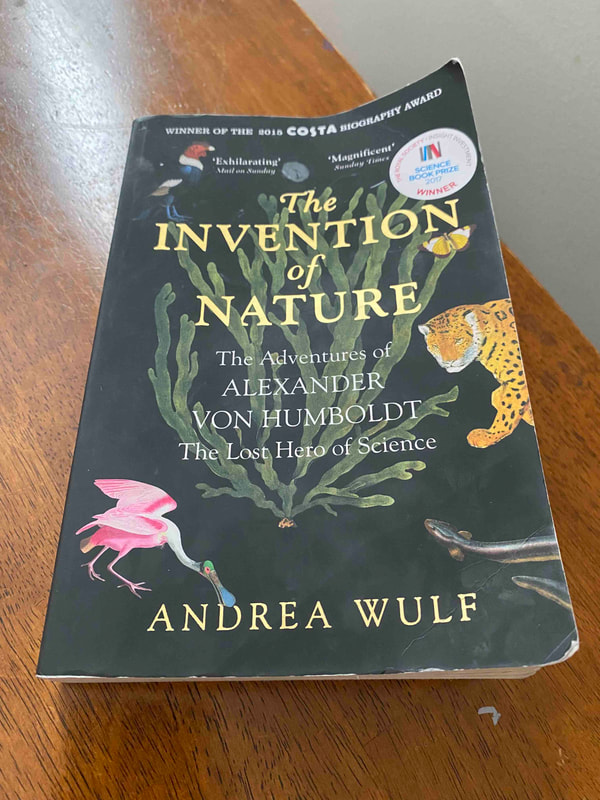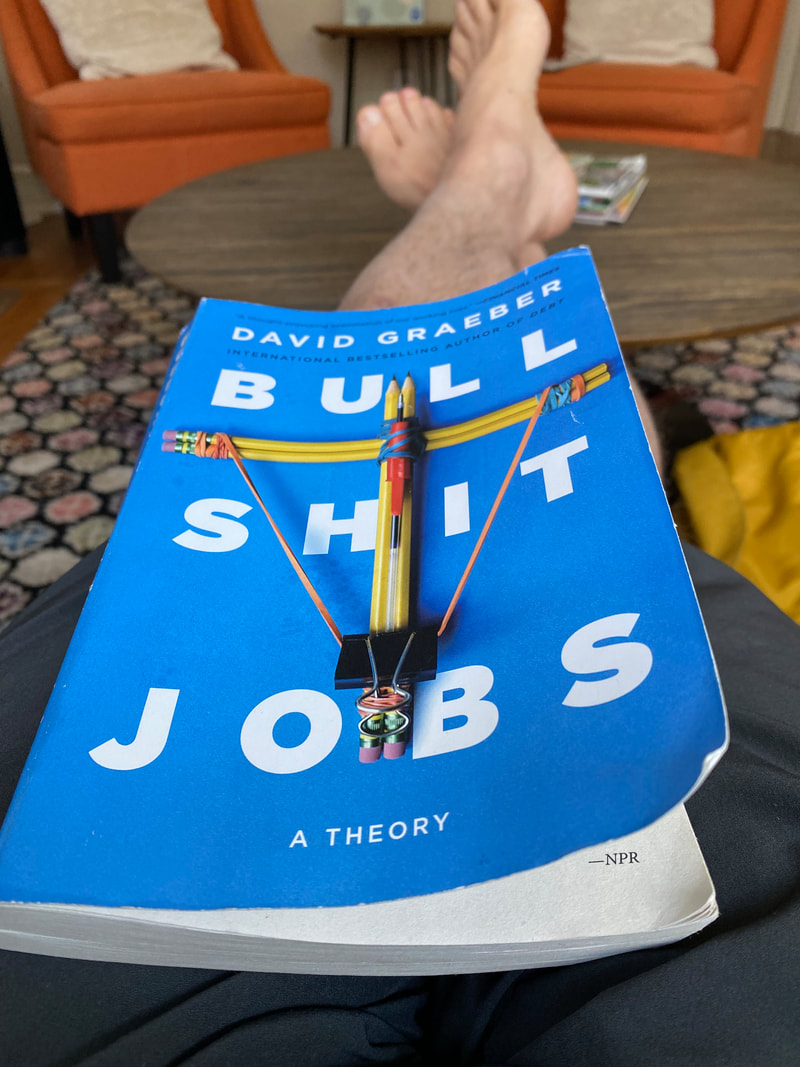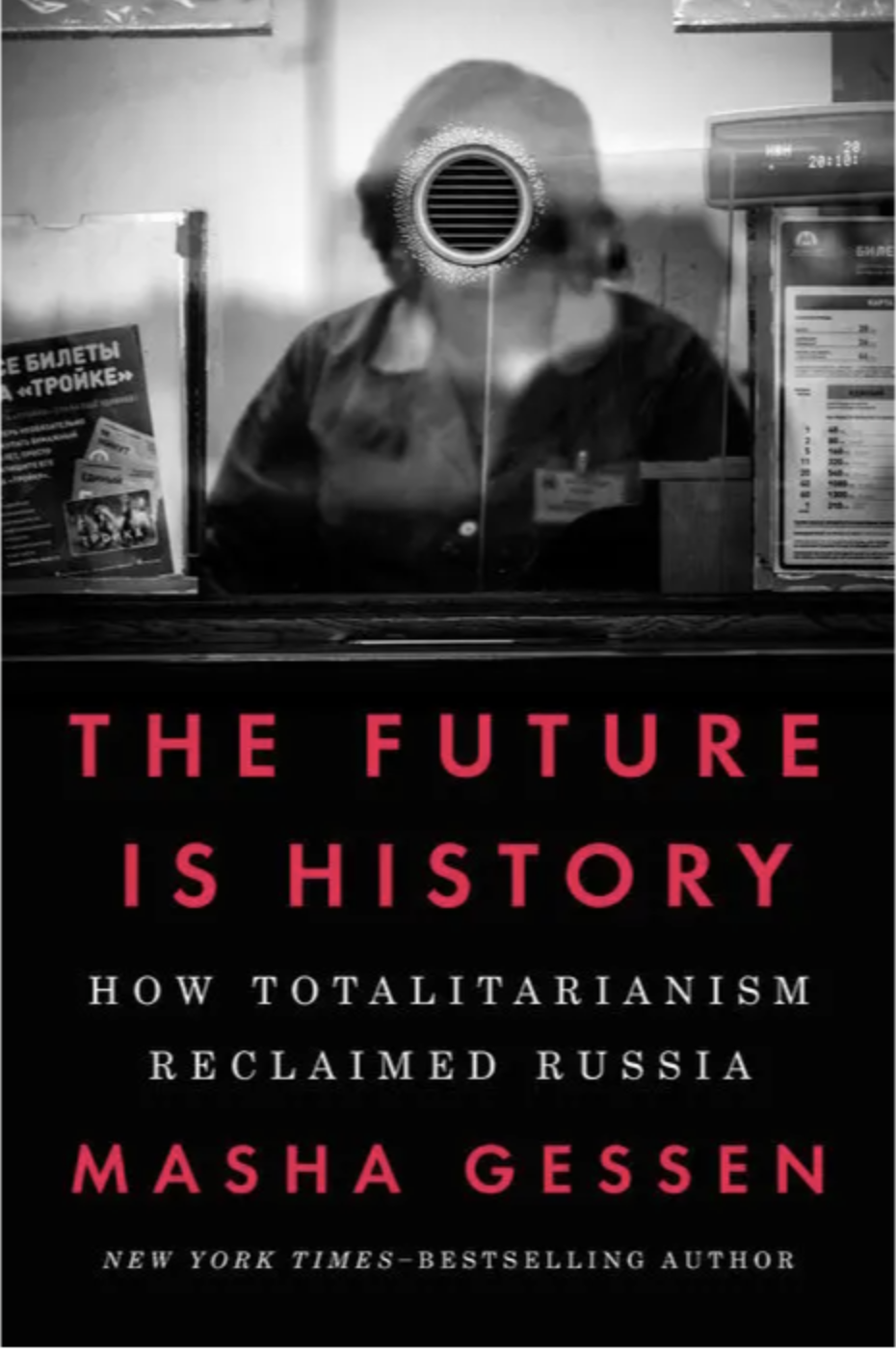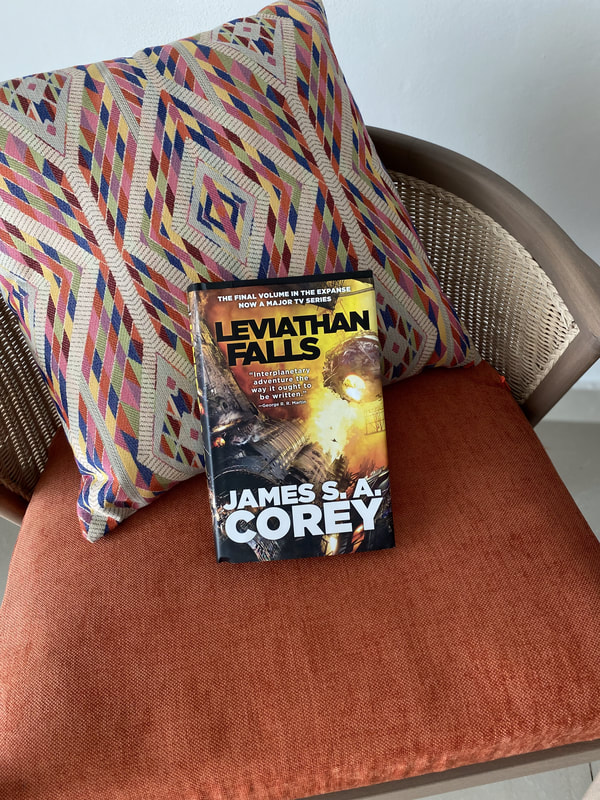|
I just read a really mean-spirited review of this book by a very critical critic. Personally, I don't think I could ever rip apart something that someone had put so much energy into - something that had so much of a person's actual biography in it, and therefore truth; something created by a writer with so much native talent, and the will & energy to bring solid working structure - if not quite traditional to bear. There are portraits of people (Any of the Rude family) and sketches of time periods (Brooklyn before "gentification" - the birth of rap, graffiti and tagging, punk rock in New York, and the crack epidemic - that are worth the price admission.
Nevertheless ... I totally get it. I can do without people peppering their reviews with F bombs in the name of some sort of credibility, but yeah. I can totally understand why someone who's not me would be annoyed this book. You don't have the same cultural mile-markers. You didn't have to clean dogshit off of some big kids shoe just because you were white. You didn't have a religious experience the first time you heard the new york dolls. I'm assuming you don't spend your youth on an unsupervised, drug spiral. Honestly, it's tough for me to understand anyone else actually liking this book besides me. It's not for you. This book is like the conversations I have with my wife. It's almost like we were together growing up because we're the exactly the same age - we remember the same music, shows, cultural events - it's just that she was in Texas and I was in Seattle. Same way with this thinly-veiled biographical novel. It's almost like Jonathan Lethem wrote this book to say "This is what it would have been like growing up in Brooklyn, Max." Though exaggerated, the parallels were numerous - in particular around race. In the book, Dylan Edbus is the only white kid at his pre-gentrified Brooklyn school. I wasn't the only white kid at Montlake Elementary, or at Madrona, or at Meany, but my class was the first to be bussed to a black neighborhood. It was awkward and sometimes violent. To make things more conflicted, his best friend, Mingus Rude, is the son of a black, down-on-his-luck, freebasing musician and a white woman. My best friend in elementary school was my 1/2 black cousin Morgan. Our feelings around race are mixed, with getting bullied for being white but at the same time, this is a huge part of our identity, Dylan's through the music and graffiti culture, mine through basketball. My relationship with race complicated - very much like the portrait in the book. I still have some internal scars but it's also part of my identity and I'm proud of where I came from and I'm grateful for what I believe in is understanding of black America I have from growing up where I did. But I don't glamorize or idealize anything. Dylan is precociously smart and escaped his public school neighborhood to feel very out of place at an academic high school, Stuyvesant. Instead of going to Garfield, I went to Seattle Prep where I was a National Merit Scholar, and felt very out of place amongst all the kids from the suburbs. Drugs are a big part of the Dylan Edbus and Mingus Rude story. Drugs and alcohol were a big part of the Max and Morgan story. Morgan is dead now. I'm in recovery, so ... not dead. There is a bit of comic book magic in the book which some of the reviewers find off-putting. I find thematical correct and idk, why the heck not. I was never into comic books. More into Narnia and the Lord of the Rings. But I'm still taking that damn ring to Mordor, like it or not. Anyway. I know this doesn't seem much like a real review but I'll leave that to someone else who can write that better. Because I can write my own experience better. I will say that Generation X, as a cultural blip, is fascinating for me to revisit, now that we're closing in on the end of the story and becoming more and more of a an endangered species. So many of my friends are gone now, victims of depression, self-abuse, drugs and alcohol. I wear my self-loathing with pride, distorted guitars, distressed type and all. We had our moment. It was as beautiful clear and shining as a Tom Verlaine solo. And I'm glad for this portrait of what was going on in Brooklyn that answers the question - what would it have been like for me? ps. And as for the reviews that talk about how there are no responsible adults in this book, and it can't be a coming-of-age book because no one grows up ... sorry kiddo we don't measure up. Guess you had to be there.
0 Comments
I opened this book with some trepidation, almost annoyance. Here comes another tome to legitimize a pod-guru's personal brand. Just give me the Cliff notes, I thought. But what I didn't anticipate was how interesting the background science would be. Dr. Attia begins by saying that other people that claim people can actually live longer is selling a line of goods. Mostly snake oil. The way that our cells break down, no one is going to be living to 200 or whatever. What he's really interested in is not longevity per say, but the quality of your life while you're living it. What he's talking about is Healthspan vs. Lifesapan. He even has a helpful graph that shows with a x-axis line that stays more bulbously elevated for longer with a steep drop off that visually describes the goal of keeping your mental faculties and physical mobility for longer.
The other theme he seeds early on is medicine 2.0 vs. 3.0 with medicine 2.0 basically treating the sickness and prolonging a life of misery, while "medicine 3.0" gets ahead of the game and is healthy based and preventive. Thinks ahead, rather than forecast, it back-casts - what do you want the last ten years of your life to look like? In a catching chapter in which they analyze the habits and DNA of a collection of people that reached their 100th year, he asks, what does it take to win the Centenarian Olympics? How do we avoid what he calls the four horsemen - Diabetes, Heart Disease, Cancer and Dementia and - the four things that Centenarians seem to be able to put off for 10, 20 years or in fact, avoid altogether. And then he goes into each of the four horsemen, chapter by chapter. But they're basically all related. In fact, having messed up blood glucose due to ingesting too much fructose not only directly to type two diabetes, it contributes to heart disease, cancer and dementia. He told the story of doing an operation where a guy that didn't drink still had a fatty liver on the verge of cirrhosis - basically because he drank 10 cokes a day. He really breaks down how our modern diet is to sugar heavy, and our bodies don't know what to do with it. We need to have sub-cutaneous fat, but when those reserves are full, the body starts storing fat elsewhere. And when it gets trained to do that, Type 2 Diabetes. Interestingly, it's a little more complicated than "eating fat" = fat in my blood. "good" cholesterol v "bad" cholesterol. It's more about training your body to burn fat. An Immense World, How Animal Senses Reveal the Hidden Realms Around Us. In a sentence, this book is a sense by sense exploration of how animals sense the world differently than us. Sight, smell, feel, taste, electrosense, magnet-sense, etc. For example, we all know that dogs hear better than us. And that eagles see better than us. But it's not that simple. What the author does is break down every animals world view into a specific "Umwelt" or how they apprehend the world. There are chapters devoted to Smells and Tastes, Light, Pain, Head, Contact and Flow, Surface Vibrations, Sound, Echoes, Electric Fields, Magnetic Fields, Uniting the Senses. Scallops have little eyes all around the outside of their shells that sense light. Butterflies can taste the things they land on with their feet. Catfish can taste the water around them with their skin. A chameleon's eyes move independently so it can see forward and back - and plenty of animals see different parts of the light spectrum than we do. In fact, many have ultraviolet markings that we can't see - like hummingbirds. Bats can sense the infrared heat emanating from warm bodies, and of course use echolocation to hunt. Otters and seals use their whiskers to sense the water-trails of fish and can track prey even when blinded - as can the bumps on an alligator's snout. Elephants can identify the tread of familiar elephants through the pads of their feet. Whales can communicate using low-pitched infrasonic calls. It's conjectured that in quieter times, they could communicate across entire oceans. And it's not just that some animals have different seeing or smelling or taste than we do - they have entirely different senses that we don't - like echolocation, and migrating birds can sense the the earth's magnetic fields - and we're not even sure how. Loggerhead turtles can do this, too. Many insects and birds communicated with sounds we can't hear or - this was an ear-opener - through the vibrations of plants leaves. They can communicate with potential mates, or feel the approach of chewing prey. Some animals are insensitive to cold so that they can hibernate all winter and the naked mole rat doesn't feel burn from the chemical that makes chilis hot. This one made me appreciate what it means to share our planet with animals. And made me rethink what it means to be human. That sounds a bit dramatic, and it wasn't like a complete 180 degree change in my thinking - but it reinforced much of what I already felt and taught me many new specifics. I guess every book changes your life just a little. But this one can change your life for good, and for the good. There isn't a day when I don't think about what I learned from this book and how it opened my senses to a more open and nuanced way of perceiving the world around me. As I ride my bike along Highland, I feel the wind on my skin - the coldness and the breeze. I hear the wind in the trees and birds. If it's dark - as it is at this time of year, I'm ware of the lights and distance sounds of traffic and trains. I think about how those noises affect the animals that I can't see, driving them further into darkness. I think about it when I'm running or riding my bike in the pre-dawn darkness - when I see the deer, rabbits and the occasional fox gliding silently in the distance. And finally, I think about it a lot when I'm writing about my time sailing with my father, and all the senses that go into boat racing - sight, sound, feel and most importantly the feel of the boat under me, which is a combination of balance, proprioception and the feel of motion and micro-impacts of wave action and the tug of wind and current – proprioception, I term I've been introduced to by doing yoga with my online teacher, Flo Niedheimer, of Breathe and Flow. This book taught me about senses I don't have an expanded the imagination. And it made me more thoughtful about the senses that I do have. I went out to see my mother recently - she has dementia now, and she always had some neurological quirks - left-right problems, and prone to malapropisms. Watch out for the presbyterian in the crosswalk, that kinda stuff. But I was about to take the learning from this book and apply it to the fact that she was able to helm a dragon class racing sailboat for years - because she rode horses. The connection to the sailboat was the same - a feel thing that transcended logic and what we think of as the normal senses. It was a good moment, to watch her light up. I've just been on a winning streak when it comes to Nature books lately. This book was inspiring at a number of depths. One, it was just really well written - some excellent turns of phrase, full of mellowed and mature pacing and alliteration. He doesn't lay it on too distractingly quick from cover-to-cover, but here's how it starts:
The way into the underland is through the riven trunk of an old ash tree. Late-summer heatwave, heavy air. Bees browsing drowsy over meadow grass. Gold of standing corn, green of fresh hay-rows, black of rooks on stubble fields. Somewhere down on lower ground an unseen fire is burning, its smoke a column. A child drips stones one by one into a metal bucket, ting, ting, ting. Follow a path through fields, past a hill to the east that is marked by a line of nine round burial barrows, nubbing the land like the bones of a spine. Three horses in a glinting cloud of flies, stock-still but for the swish of a tail, the twitch of a head. Over a stile in a limestone wall and along a stream to a thicketed dip from which grows the ancient ash. It's crown flourishes skywards into weather. It's long boughs lean low around. Its roots reach far underground. Swallows curve and dart, feathers flashing. Martins criss-cross the middle air. A swan flies high and south on creaking wings. This upper world is very beautiful. Near the ash's base it's trunk splits into a rough rift, just wide enough that a person might slip into the tree's hollow heart – and there drop into the dark space that opens below. The rift's edges are smoothed to a shine by those who have gone this way before, passing through the old ash to enter the underland. So, that's how it starts. And as you can probable judge from the title, the book is both a travel narrative and an exploration of ideas as well. The other enviable and admirable part of the book is that it's a personal adventure – without being wearily self-involved. He's a professor but a real Indiana Jones, in the sense that he goes caving and climbing and is reflective about it - as well as having the historical and literary recall to create deeply meaningful context. Thirdly, the book is admirable in it's message and purpose. He lays out the effects of the global warming and the Anthropocene in striking, emotionally impactful and let's face it - terrifying ways. Because it's effing well researched - you're seeing it through his eyes – and it's true. The book is broken up into three parts: Seeing (Britain), Hiding (Europe), and Haunting (The North). In the first part, the author takes us underground in the Mendips in Somerset in a journey back in time. "'Mendip is mining country ... it's also caving country. But above all it's burial country. There are hundreds of Bronze Age funeral barrows ... some joined with monuments and henges into large-scale ritual complexes. He then visits Boulby, Yorkshire to visit a deep Potash (used in fertilizers as a potassium source) mining site which stretches far out under the English Channel and houses a scientific lab here they can measure neutrinos. The last place he goes is Epping Forest, London for a meditation on the organic networks of fungus that connect forests. (This was also a theme in the Overstory.) In Part Two, Rob MacFarlane goes to Paris to explore the catecombs, to the Italy-Slovenia border near Trieste. This area is called the Karst Plateauwhere the limestone underland is filled with 10,000 caves and tunnels and even rivers such as the Timavo which is sort of a real-life Lethe – a starless river. The final section takes us to the Slovenian Highlands - to the Alpine border between Austria and Italy and Slovenia, which has caves that were embedded fortifications during WWI & WWII as well as sinkholes in the ground where people where thrown in, tortured and half-alive. Breathtaking atrocities. To turn Trumps phrase on it's head, "There were horrible people on both sides." The final section takes us North - to view caves with Neolithic Art, to the glaciers of Greenland and finally to a deep burial site for Nuclear Waste. The section where he solo hikes to the neolithic cave to see the red dancing figures on the walls – I won't forget the images for a long time. The wildness of the Norway Coast, the plastic trash bobbing in the water, the Maelstrom, and the Cave Itself. Neither will forget his descriptions of Greenland, with its immense yet receding glaciers to be traversed, the hiking on the Knud Rassmussen, the calving face of the glacier, the blue ice, the Moulin he repels into. I could see myself doing this/I would never do this. And finally, the visit to the burial site for nuclear waste - at first, it's all trepidation and condemnation, but there's a wonderful passage where he gets sympathetic and homely - the plastic chairs, the work that goes into it - people doing the best they can to protect the world and future generations. An ambitiously conceived project. Part travelogue and en exploration of what the underland means to us - as well as the traces we leave there. Highly recommended. The Invention of Nature - The Adventures of Alexander Von Humboldt - The Lost Hero of Science9/3/2023 I bought this book in Berlin at an English bookstore, St. George's Bookshop in Prenlauer Berg. I'm such a chameleon and of course, only draped in the colors of the latest book I've read, which is always the best ever, but this book really added depth and meaning and history to the things that I really care about. First of all, it's about a German, which added context to our trip. It's about the invention of the very idea of of the interconnectedness of being on planet earth, and traces the birth of the ecological and conservation movement from Alexander von Humboldt's journey through South America and the impact that his books had, through the people he influenced – with chapters devoted to Darwin, Thoreau, George Perkins March, Ernst Haeckel and finally John Muir.
Alexander von Humboldt was born on September 14, 1769 in Berlin. His family was well-to-do minor nobility. His older brother Wilhelm was famous in his own right as an educator and intellect – I'm sure I saw a statue of Wilhelm when I was in Berlin. As a young man, Alexander v H had the same struggles we hear about so often with families - particularly 19th century families, where the conservative sensible father wants his sons to get conservative, sensible jobs. And of course all AvH wanted to do was see the world. He was intrigued by news of the New World. But he stayed in school and applied himself and became an expert on geology and useful to the mining industry. He got an introduction to Goethe. Goethe was very into science and had his own theories. They would have long discussions. This was important because Goethe and Schiller to an extent had a big influence on AvH - his appreciation of Nature wasn't just intellectual, but poetic. So one of the premises of the book is that Alexander v Humboldt was the first popular science writer -– he didn't just write with his mind, but with his heart and gave birth to a whole new genre of writing. He was hugely popular in his day. The Humboldt Current was named after him, as well as - I assume - Humboldt county in California. At any rate, he excelled as a geologist and became well-known without academic circles but never gave up on his dream of traveling. In 1799, in the midst of the Napoleonic Wars, he was able to secure passage to South America, which at that time was pretty much completely colonized by Spain and closed to outsiders. Thus began a five year journey. I could give you the blow-by-blow but that's what the book and the online resources like this nice Encyclopedia Brittanica article are for. What I remember from reading most are the bugs. The traveling through different ecosystems - high desert with wild llamas, the rivers and forest and meeting the natives – and everywhere, bugs. As he travelled, his macro view of Nature began to take shape. Life is an interconnected web. Ecosystems are related, but consistent around the world. Going up in elevation is the same as going North. There was the observational part of the narrative as well as the sheer adventure of it all. He basically tracked through the Wilderness in two separate trips - the first time going up a river in Venezuela, I think, and proving it was connected to the Amazon watershed. Then he came back, went to Cuba, and then came back to South America and climbed the Andes. He climbed Chimborazo - an extinct volcano in Ecuador to a height of 19,286 in 1802 –without oxygen or any modern climbing equipment – he didn't reach the top but this remained the record for highest ascent for three decades. When he came back he spent the next quarter century making the rounds of the salons and publishing an incredible amount of books - making himself the most fashionable, emulated and influential scientist of the 19th century. His impact was polymathic. Social, scientific, artistic and cultural. I almost forgot to say that he was good friend with Simon Bolivar and had strong opinions about how the environment - and the natives - were treated by Colonialism (this was a big reason why he was never allowed to consummate his dream of visiting the Himalayas, because of the controlled paranoia of the British East Indian Co.) He observed. He drew. He measured everything. He sent letters and samples back. He discovered the equatorial line. He measured the magnetism from the poles. He discovered, first hand, altitude sickness. He measured the blue of the sky. And he wrote a thrilling narrative. Everyone read his work. The Romantic poets of course and mostly importantly, maybe, Darwin. He loved living in Paris, and always felt that science was a nation with no borders. When he returned to Berlin to be kept as a golden bird in a cage by the king, he suffered. Late in life he was allowed one last journey – he travelled across Russia to the Altai mountains. Most of of the Russia Steppe was repetitive, but he crossed into Mongolia, and was able to measure and observe and meet the Chinese at the border. At the end of the book, there are separate sections on those he influenced. Some we've heard of, some not so recognizable. Darwin. Thoreau. George Perkins March. Ernst Haeckel. And finally, John Muir. As the book went into these other sections, I felt a sense of loss. Is that all their is? But then each of these people were fascinating in their own right – and Andrea Wulf gives a stirring insightful narration of the impact of each as well as their relation and acknowledgement of the Humboldt in some of what they said and in all they did. Why is Humboldt sort of forgotten today? A big part of that is that he was German - and like Haeckels, his legacy was sullied and even tarnished by association with the Prussians and the Wehrmacht. In the end, I walked away with three things that I hope I never love. One, an appreciation for nature and a fascination with new vistas. Two, an for the never-ending adventure that is life - many of these guys just never slowed down but kept creating, learning, exploring. And finally, more context on the Belle Epoch and Art Nouveau - which I'm further fascinated by. Such a strange book. I think I only understood what might have been happening after talking to my wife this morning.
The book begins as a dark noir mystery, draped in southern moss and twisted as a mandrake, but it never solves its own mystery. But I believe that's because life and death are a mystery that there is no pat just-so ending for, and McCarthy's ambitions, with this book were higher - or maybe he just tapped into something deeper - a dream like unconscious space where this is what came out. Or maybe he's just lazy and doesn't give a fuck anymore, because he's Cormac McCarthy, and he doesn't have to. The most compelling and memorable thing about the book are the characters, Bobby Western and his sister Alicia Western. Both are the children of a brilliant Jewish physicist who working on the Atomic Bomb. The second most compelling thing is the language and the ideas and the simple evoking of a sense of place - New Orleans before Katrina, before cell phones, before the Muggers, before "NOLA" - early 80's. The charm of walking Decatur Street without tourists and stoners. Being able to go to Du Monde and just get a cup of coffee. The elevation of language and the conversation that happen - it's almost as if someone said, hey Cormac, you never write dialogue - so he created a book of complete dialogue. After reading this book, I find myself actually speaking better. As to the action, it begins with Bobby Western and his partner diving into the swampy Bayou around New Orleans to inspect a downed small jet. There are about 12 people on board and one passenger is missing. Bobby gets the sense that something is missing and no good will come of this dive. He is soon visited by two curious Fed types who want to know if he took anything from the plane. The expectation of the book is that we're going to follow up and find out more about the plane crash. The name of the books is The Passenger after all - who is The Passenger? This is never settled in any manner other than super obliquely. Bobby revisits the site once, and then, after that, the story drifts into a dream-logic mashup of remembrance and the un-answerable questions that old men can't ever stop asking when they wake up at night. Bobby had a sister and she was brilliant and beautiful. Beautiful enough to make a man reconsider all of his decisions in life; smart enough to get into the University of Chicago at 13. Bobby and Alicia were in love. Bobby was brilliant; Alicia Western transcendently so; so much so that it was nearly impossible for her to have a conversation with anyone on earth. Bobby & Alicia were in love with each other - it's like, no one else could be at their level. It was an incestuous love that was apparently never consummated. We meet Alicia through Bobby's pining, the memories of others and through her conversations she has with "The Kid" and accompanying apparitions that visit her when she goes off her meds. The Kid is some sort of creepy smart ass humanoid creature with flippers for hands. He's accompanied by other creatures - a sort of little vaudeville of horrors. Bobby eats and drinks and converses his way from one really swell New Orleans restaurant to another, speaking with a series of ne'er do well characters who all seem appropriately world-weary and well-read, with criminal records and a shared history. Long John being the prime example. Bobby is constantly pursed by two guys who seem like Feds that come to check in on him - they eventually seize his car and freeze his bank account. The sense is that they're looking for something, but it's not clear to us - or even Bobby - what they're looking for. He goes to see a lawyer who recommends he switch identities and leave. He drags his feet as he goes home to see his grandmother. He goes to the asylum where his sister checked herself in and speaks to some of the patients that knew her. He goes to ground, lives in a shed on the Bayou and then turns north and drives north to spend a survivalist winter in Idaho in an old farmhouse owned by a family friend. The travels and the sleepless nights are all described with proper McCarthian oomph, like no one else can write - muscular, dark, foreboding and melancholic without sentiment. The end effect is of: a dream and that pit in your stomach. This book leaves is like a nightmare when you can't shake the feeling all the next day. Grieving. Loss. I guess the operative question at the end is, who is the Passenger? And what really happens? Is it some sort of 6th sense thing - did he actually die in the plane and his soul is wandering through these uncomfortable realms, searching for the peace of at least official bardo? A couple things before I wrap this for the night. One: it's interesting that he takes all of the Southern tropes, ie, you fuck you sister. You like to drive fast cars. You drink - and takes everything to a heighten level - yeah, maybe I wanna fuck my sister but she's an angel not fit for this world. Yeah, I'm a gearhead but I drive a Maserati. In the end, it all feels like southern slackers - but with better vocabularies. We are all the Passenger. We all have our forbidden loves. Our ways of being much too much complicated for the world. Everyone must suffer - will you be respected or pitied. That's the only question. Not really completely sure what I expected to get out of this book but I gotta say, every page was a surprise. In a sense, it starts with compassionate listening - people sharing about how much they hate their jobs because they find now sense of purpose or meaning in it, and then from there, he proceeds to dismantle the entire capitalist-western-democracy-edifice, one accepted brick of commonly-held wisdom at a time.
It took me a while to get through this and I only just now finished on the plane to Seattle. So I need to refresh what I was reading about. I think it would be best to look at the chapter titles and section summaries (which, with Graeber, are always entertaining in their own right.) **** Book Report on Bullshit Jobs, a theory by the late, great David Graeber. This book had so many ideas in it and it stirs up a lot of stuff and I read it in two parts - finishing the last 1/3 on the plane out to Seattle (and now I’m writing this on the plane back). So first of all my disclaimer I use with other people is that you don’t have to agree with everything he says, after all he’s an admitted and avowed anarchist. But I think that’s a bit dismissive and letting people off the hook, ie, because of the name of the book and the author’s extremist leanings, you don’t really have to take it seriously, haha, and don’t imagine for a second that I do. But as for the book, a lot of the questions are absolutely spot on, logical and society-changing if we could address them; and as for being an “anarchist” - well, after talking the ahimsa course and the encouragement to think of what your Utopia looks like, sounds pretty good to me. Anyway, the book started because he wrote an essay called “On the Phenomenon of Bullshit Jobs” for a radical magazine called Strike! The response was so overwhelming that concept went instantly viral with people writing to describe their own bs jobs - which he used as the raw material to write the book. So basically, I’ll just go through chapter by chapter and give a quick summary. This is in no wise meant to be a substitute for reading the book, as many of the most thought-provoking elements are sub-threads or sociological/economic theoretical asides from the main topic. Chapter 1. What is a bullshit job? A bullshit job is not something that someone else judges as detrimental or useless. For example, the first section is entitled “Why a mafia hitman is a bad example of a bs job” and he also uses Douglas Adams’ making fun of hairdressers as another example of a job that’s not necessarily bs because you’re performing a creative service. A bs job is pretty subjective but basically it’s a job that seems pointless to the person doing it and is definitely depressing and unfulfilling and seems to have no actual purpose - after all, who would know better than the jobholder themselves? Chapter 2. What sorts of bullshit jobs are there? There are five. Flunkies, Goons, Duct Tapers, Box Tickers and Taskmasters. I think this is self-explanatory, but flunkies are there being useless, doing meaningless task so that someone who has money and/or power can boss them around; goons enforce meaningless rules; duct tapers fix shit that’s probably not even a valid system or group activity to begin with; box tickers - yeah, we all know what that is, because even if it isn’t your only job, more and more of us are asked to do more and more bureaucratic box checking, simply as part of our regular non-bs jobs all the time; finally, a taskmaster is just a middle-management person, and no doubt a flunky for someone op the foodchain. Chapter 3. Why do Those in BS jobs Regularly Report themselves unhappy? This chapter gets into the concept of spiritual violence, and how shitty we all feel when we don’t have a purpose and he goes back in time to show that the very concept of buying and selling our time, as if it’s a thing, is pretty new in the human experience and sort of sets us up to feel like we’re just cogs. This is the best part of this book, because it brings up stuff you haven’t thought about - I hadn’t thought about time-as-a-commodity and how dehumanizing that could be. (And yet I time everything, from meditation to work …) Chapter 4. What is it like to have a bs job? (on spiritual violence, part 2) This chapter just basically goes through the ways that people deal with it - probably the chapter that draws most heavily on the case studies in the form of letters and emails that people wrote. Some people find other things to do - writing plays or contributing to Wikipedia while they’re getting paid. Etc. Chapter 5. Why are bs jobs proliferating? This is where it starts to get interesting cuz we’re getting into conclusion-land. People think that bureaucracy is the government and socialism and the epitomy of bs jobs would be the old Soviet Union (“we pretend to work and they pretend to pay us.”) But the rise of the new bs jobs really started in the 80s with the urge toward privatization. You would think that this wouldn’t have eliminated bs but it actually increased it. One, because there’s no this money out there and people aren’t really interested in getting the job done, but rather in creating processes of man hours and then going and getting funding for those people hours. So the bigger your staff of consultants, the more money in play, the more money made by those at the top of the foodchain - but like I said, no real work is getting done. Its just people checking boxes, making tasks, enforcing rules without purpose - doing bullshit without a true purpose in mind. The movie industry and primarily the financial industry are given prominence here as examples non parallel. Chapter 6. Why do we as a society not object to the growth of pointless employment? Basically, this goes back to ye olde “protestant work ethic” “work as a virtue in its own right” - “oh yeah, we’re all working so hard and so unhappy and super happy about it because we’re working so hard and that’s how we find value in life even if that value is hard to pin down.” Yeah, but there are a lot of interesting threads to pull out here. First of all, he goes into pinning down the actual tradeable value of what we do and how anomalous that is. Secondly, he goes into the seeming inverse relationship of the level of meaningfulness in a job and your monetary compensation. For example, teachers - useful job, low pay. Financial CEO, totally useless, highly compensated. (his judge of usefulness being thus: if that class of person were to disappear off the face of the earth, how fucked would we be? Teachers and garbage collectors - we’d be very fucked. Advertisers and finance guys? We might be better off.) From this, he goes on a minor tangent about moral envy - that sense that we resent teachers and others of the “coastal elite” because they think they’re better than us, and therefore since they actually have meaning in their lives and get to be useful and creative, they have no right to ask to be paid. He then goes into a little economic history and how capital-ism grew as a way to redistribute wealth from the landed gentry, but then because a way to exploit labor. Along came Marx, with his theories and the labor theory of value - basically, pointing out that the wealth of the robber barons was based on the effort of the proletariat. But then, the capital-ists turned that on it’s head and said, you can work and then you get a better life - look at all these things you can “consume!” and then the capitalist/consumerist model was born, where we all work at job we hate so we can have Big Gulps, jetskis and Netflix and destroy the world even as we numb the pain. Chapter 7. What are the Political Effects of BS jobs is there anything that can be done about this situation? By this time in the book, his nomenclature is full developed - “managerial feudalism” vs. “The Caring Classes” - and I’ll just kinda riff here my conclusions and may or may not clearly communicate Graeber’s. Managerial feudalism is of course, the creation of economic empires of bs; there are piles of money out there, either created by extra profits or govt subsidies, and the bs empires expand to fit. Instead of just having people work less when we have more profits, let’s just hire more consultants and middle managers. It’s sort of a sneaky social welfare program because what’s the alternative? We all just hang out? The caring classes comes out of this notion that our labor actually can’t be quantified. What we do as humans can’t be done by robots, and the rise of robots and systemization doesn’t actually save labor but creates more bs jobs. What we mean by “caring” in this instance is not necessarily giving a shit, but actually caring for other people. The example being ticket takers on the London Tube - it’s fine if they are replaced by machines if everyone’s healthy, not disabled, old or young or tourists from Akron. While admitting that it’s a book that simply points out out a problem, in the end he does offer one solution (even though he is at great pains to qualify it, because he doesn’t want the book to be dismissed as simply a book about Universal Basic Income - but his premise is that if we uncouple work from “making a living” then a lot of these problems will disappear. I would add that if we had free college education, then our young people wouldn’t be in debt. That would eliminate a lot of bullshit. If we had universal healthcare, that would eliminate a lot more bullshit. ***** What a personally took from the book: 1)I think I have a clearer view of what my utopia looks like. Lotsa art, with an educated populace with an emphasis on learning, science, community, kindness, cooperation, an appreciation of beauty, simplicity and the creative arts. 2)Leisure is a good thing. 3)I don’t think being “driven” is really that cool. Just seems to create drama. Whatevs. Let’s hang out. ofGreat title, huh?
So this is about the most depressing book I've ever read. The reason is the current context and the war in the Ukraine - this book predicts it and not only explains the current war but show how it is inevitable. Masha Gessen gave us a 500+ page crystal ball. The author, a native Russian expat who grew up and lived through all the changes she talks about, traces the time from the fall of the Soviet Union until a few years ago through the experiences of a few real people, most memorably a woman journalist whose politician/activist father is murdered *(that's her, right?), a sociologist, a psychiatrist and a gay professor who she follows through the process of coming out, getting a degree, teaching and finally leaving Russia when it becomes untenable. The book begins with the collapse of the Soviet Union. It all happens faster than Gorbachev can handle. He's overtaken by the populist Yeltsin, man of the people. He declares Russia for Russian. He attempts, in his drunken inconsistency. But in this revolution, there's no constitution, to transition, no balance of power. Some legacy systems are left from Soviet Union. Basically, it's just a feeding frenzy and opportunists thrive. Two things happen here, and she uses Erich Fromm's book Escape from Freedom as a touchpoint. In his book, Fromm talks about two kinds of freedom - "Freedom from ..." and "Freedom to ...". "Freedom From" is the most basic kind of freedom. Freedom from oppression. Freedom from physical violence. Freedom from physical constraint. Freedom from hunger, etc. Freedom to ... is more complicated - it implies responsibility. It means that you have freedom to go, and choose, and decide. "Freedom To" can be terrifying. Alot of people don't want "Freedom To" - they want their choices made for them. That's why there are charismatic leaders, henchmen, yes-men, cults and gurus to lead them, and of course, totalitarian states. So basically this is what happened. Russia achieved freedom and open-ness, ie glasnost, and everyone's lives increased incrementally while the people at the top grabbed for more and more and more. And even though people could now get cheese and toilet paper and Starbucks and McDonalds hamburgers (who pulled out of Russia because of the invasion of Ukraine, btw) they looked around at the people at the top and particularly at The West and they felt envy and a loss of identity. They had always defined themselves as other and now they were on their own. In steps Putin. He gives them back their identity and takes away their scary freedom - one again, they know who they are. Conservative, not Western, they people that complain about their lives but since they can do nothing about it - once again - they are released from responsibility. But not everyone. The interesting thing to note in light of current circumstances is how Kyiv & Ukraine came to be the anti-Moscow - the pace where the dissidents and rockers gathered. Those with a rebel attitude. This is explained by the concept of schismogenesis, as defined in The Dawn of Everything - (see review below) - the idea that cultures and people define themselves in reference to neighbors - a sort of nation-state version of sibling rivalry. So, the tighter the repression became in Moscow, the more Kyiv became the anti-Moscow. Which is one dynamic that made this present war inevitable. The second thing that's just horrifying and I mean I was literally highlighting passages on every page - is the alt-right ideology and propaganda coming out of Russia and particularly Putin's mouth. He told us what he was going to do - and moreover, since the anschluss of Crimea and the invasion Georgia & eastern Ukraine, with every engineered election, his approval ratings go up, even as people's true freedoms and quality of life go down, in terms of food they can buy, places to go, charm and art and all the beautiful choices, little and big that make life as a human being worthwhile. I'm summarizing here, but as a final point, I'd like to note how jaw-droppingly similar the "conservative" narrative has been in Russia to what we have on the alt-right here - the emphasis on "family values" - the mistrust and despisal of other in the form of gays, people of color. The constant public red-herring dialogue about issues that don't really matter - stuff that's completely made up, ie, in case of Russian, pedophilia, in the case here, the emphasis on "gun rights" and "pro-life" as badge issues, which in the scheme of things, should not be public issues at all. I've got to say it was very eye-opening - and even more terrifying that the foregone conclusion of Russian interference and manipulation in the election - skills that happen to be old hat for them - the state has been creating entire fake political parties in order to put on a show for a sham-election; creating a few fake Twitter feeds and Facebook groups was absolutely no problem at all. Again, the worst thing is the conservative alt right narrative. (frankly Fascist, I don't know what else to call it). it's the same line of BS we have going on here - it's like Trump, and now Le Pen are taking notes. This is how to harness people's hate, insecurities and fear and create a power grab. In the book, they talk about how La Pen's narrative is proving surprisingly effective, when she came in 3rd in a Municipal election! She gave Macron a run for his money in France's most recent Presidential election. Anyway, Ukraine knew this was coming. They knew they would fight. No surprise on their part. As for the rest of the world, I hope they continue to surprise us - Russia, the U.S. and everyone. My God it took so long to read this whole series that I forgot what happened. Nonetheless, a satisfactory series on a lot of levels. Plausible characters, plausible science, a legitimate story arc with a sweet spot for people-kind and all of our foibles, despite our character flaws. Highly recommended. Anything else I could say will summersault into a spoiler and/or I'm just feeling lazy. In terms of memorable science fiction/fantasy series, The Expanse is right up there with Brandon Anderson's best work, the Game of Thrones, with Lord of the Rings and Narnia being the bar, with Harry Potter close behind.
So you can stop here, if you don't want spoilers. My son Will - a voracious reader - was sort of underwhelmed by the ending. And I think it is sort of a cheat to never really reveal who the gatebuilder civilization was, or reveal who the unseen evil is that threatens from another dimension - it ends up really being about "what it means to be human" - but in that sense, it's the right close. Some of the characters are the most memorable ever - Jim, Naomi, Alex, Bobby, and of course Amos - even as he's transformed. I also really enjoy the tv series. Okay, that's enough for now. |
